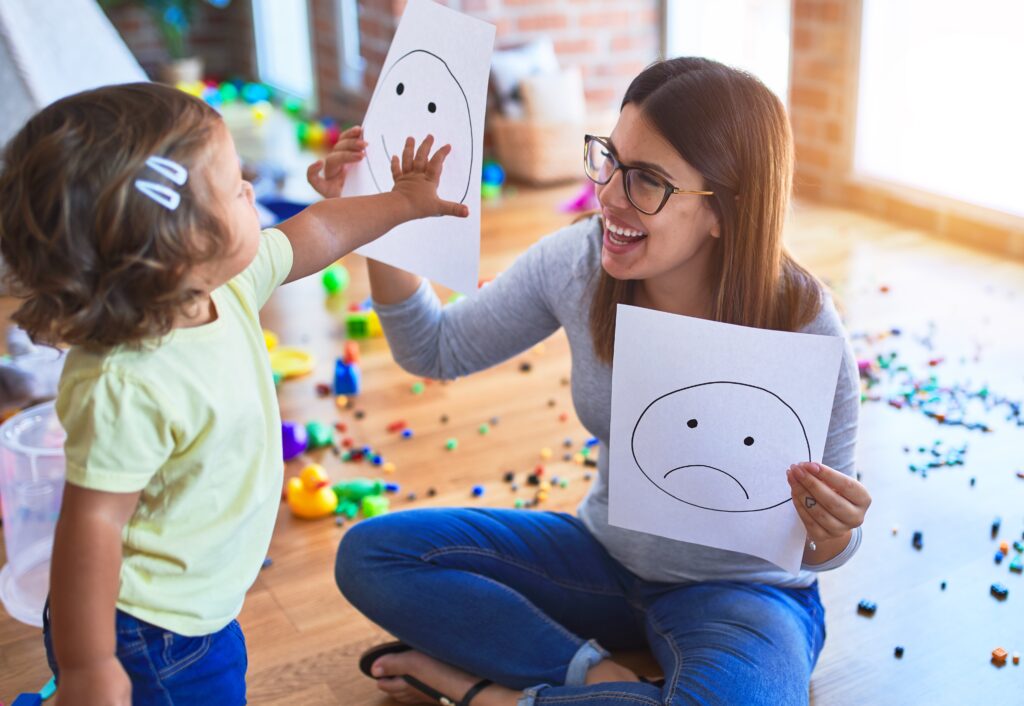Separation anxiety is defined as anxiety provoked in a child by the separation or threat of separation from their caregiver. Separation anxiety is typically first seen when the child is an infant, usually beginning around 7 months of age and subsiding by the age of 3. Separation anxiety is when a child develops an attachment to his caregiver and becomes upset when separated from them. It is a normal part of development in a child and is not in and of itself a reason to worry. Below are some ways to help your child feel safe in new or unfamiliar environments.
Tips to ease commonly separation anxiety:
- Be predictable and reliable: Follow a routine for naps, feedings, and bedtime. If your child is older and you are dropping them off at school or daycare create a routine for drop offs such as singing a special song on your way to school, saying goodbye with a secret handshake. Make sure to tell your child you are leaving and when you will be back. Do NOT sneak off to avoid tearful goodbyes.
- Leave something behind: Have your child bring a favorite toy or blanket with them to make them feel safe and comforted. If your child’s school or day care does not allow this, give them something of yours to keep such as a hair tie, a lucky coin, or a special sticker or hand stamp.
- Read about it: Help prepare for the difficult transition ahead of time by reading stories about similar situations. Some books parents have found helpful include: The Kissing Hand, The Invisible String, Llama Llama Misses Mama, and Owl Babies. If you don’t have access to these books, even making up stories helps.
- Stay positive: Avoid tearful goodbyes or asking your child if she will be okay, this only serves to plant the idea in her head that they should be worried about something. Keep your facial expression happy and talk about all the fun they will have. Nothing spooks your child more than sensing your worry or fear.
- Avoid criticizing: While the situation may be frustrating avoid calling your child names such as “cry baby”, “sissy”, or “mama’s boy”. While you may not understand your child’s anxiety or fear, negating their emotions by using hurtful terms only serves to decrease your child’s self-esteem and make them feel worse.
- Praise successes, no matter how small: Maybe your child only cried for 10 minutes after you left rather than the typical 15 minutes. While this may not seem like a big accomplishment, by praising your child for these types of achievements it will increase their self-esteem and the belief that they will be okay without you.
While separation anxiety is a normal part of child development, it is when these feelings intensify, persist, and begin affecting your child’s academics or relationships with others that it becomes a problem and may warrant the diagnosis of separation anxiety disorder. Separation anxiety disorder is characterized by worrying that is out of proportion to the situation of temporarily leaving home or being separated from a loved one
Symptoms of separation anxiety disorder:
- Fear something terrible will happen to a loved one
- Frequent nightmares about separation, crying before bed, reluctance to go to sleep, and not wanting to sleep alone
- Refusing to go to school or daycare
- Worrying about getting lost or being kidnapped
- Complaining of a physical illness such as stomach aches or headaches
- Wanting to be home with loved ones above all else
- The anxiety levels start interfering with your child’s life as well as with your own
If you suspect your child’s behavior is more than just “common” separation anxiety, a comprehensive evaluation and treatment with a trained professional are available at Good Therapy San Diego!








